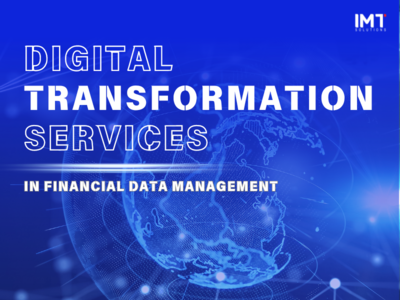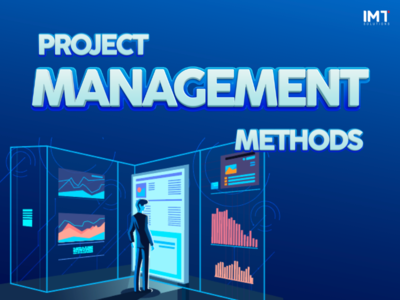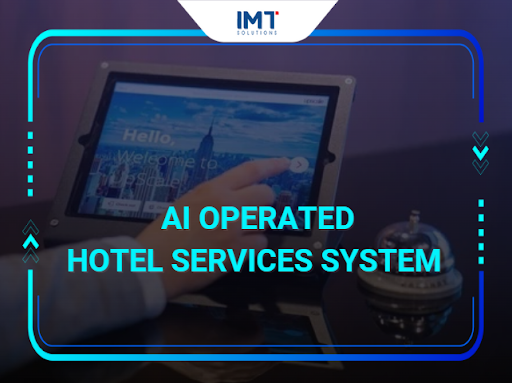AI Automation Trends to Watch in 2025
In recent years, AI Automation has emerged as a leading technological trend, transforming industries by enhancing operational efficiency and reducing costs. As businesses continue to adopt AI-driven technologies, 2025 is expected to be a pivotal year for AI Automation’s growth. With the increasing integration of machine learning, robotics, and intelligent systems, industries such as manufacturing, logistics, retail, and customer service stand to benefit greatly. This article explores the most notable AI automation trends to watch in 2025, shedding light on how these innovations will shape the future of various sectors.
Why is AI Automation an inevitable trend for the future?
AI Automation is becoming indispensable across industries due to its ability to enhance efficiency and lower costs. Intelligent automation systems help businesses optimize processes across all sectors, from production to customer service, reducing errors and labor costs while boosting productivity. This is particularly crucial in today’s highly competitive environment, where companies must work more efficiently while maintaining high product quality.
Read The Future of AI Applications in Customer Experience
A key advantage of AI Automation is its precision in executing tasks. In manufacturing, AI can detect minute defects during production, ensuring high-quality output. Additionally, with real-time data analysis, AI enables companies to rapidly adjust their processes in response to market shifts, meeting customer demand with greater flexibility. AI algorithms not only forecast trends but also optimize operational workflows, providing businesses with a competitive edge.

Beyond manufacturing, AI Automation is widely applied in customer service, personalizing customer experiences based on individual behavior and preferences. This not only improves customer satisfaction but also fosters long-term relationships. Additionally, AI supports businesses in resource management, helping them meet sustainability goals by optimizing energy use and minimizing waste. To explore these trends further, read on below.
AI Automation Trends to Watch in 2025
The development of AI in industrial automation
AI is playing a critical role in improving efficiency, quality, and safety in factories and production facilities. Advanced AI technologies such as machine learning, computer vision, and robotics are being widely implemented across various industries, automating complex processes and delivering superior results.
Key AI technologies currently being applied include:
- Computer vision: This technology allows AI systems to analyze product images on production lines, detecting defects quickly and more accurately than humans. For example, in the electronics industry, AI can identify tiny flaws in microchips that are invisible to the naked eye.
- AI-powered robotics: Robots integrated with AI can perform complex tasks such as welding, assembly, and packaging with high precision. These robots can also learn and improve over time, optimizing workflows without the need for frequent reconfigurations.
- Data analytics and predictive maintenance: AI can process vast amounts of data from sensors to predict when equipment will require maintenance, reducing downtime and optimizing scheduled maintenance. For instance, in the automotive industry, manufacturers use AI to monitor machinery and accurately forecast maintenance needs.
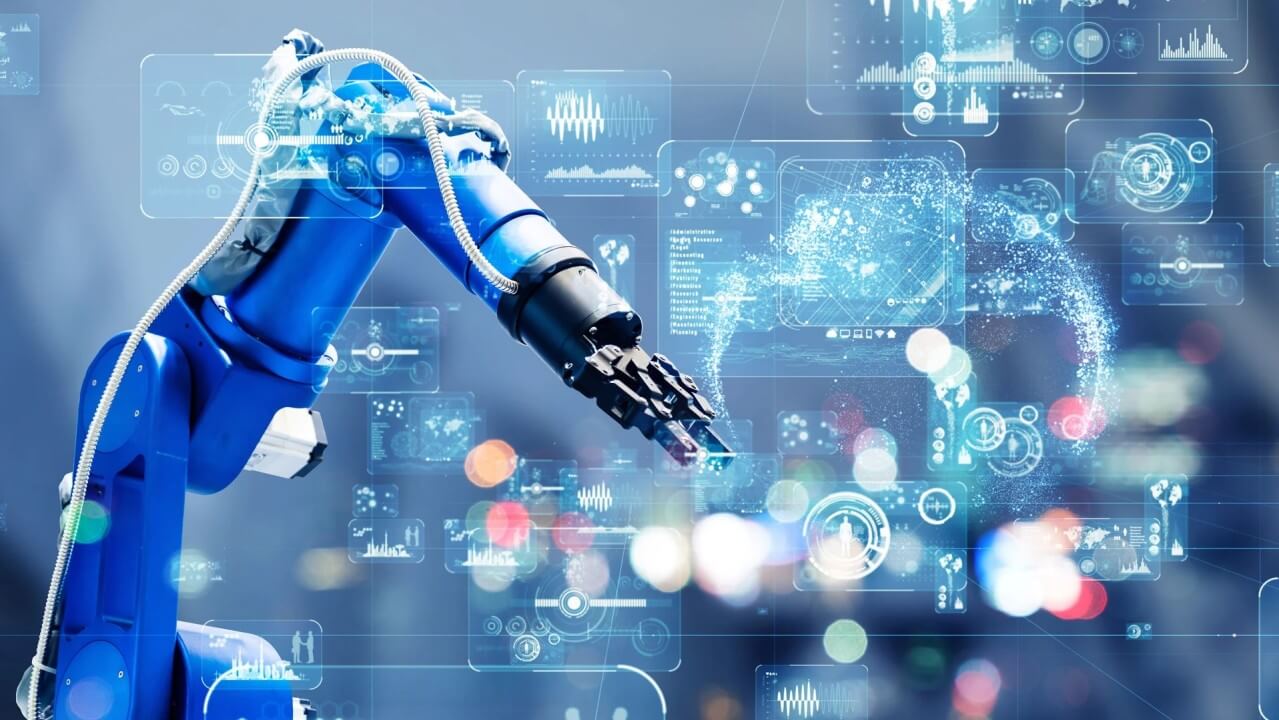
Industries leading the adoption of AI for automation include:
- Automotive: In the automotive industry, AI automation is used to automate assembly lines and quality control. AI-powered robots can assemble car components with high accuracy, while machine learning algorithms detect minute defects in parts that may go unnoticed by human inspectors. Additionally, AI helps predict equipment failures before they occur, allowing for preventive maintenance and reducing downtime on production lines.
- Electronics: The electronics industry utilizes AI to monitor and assemble components with stringent accuracy requirements. For example, during the production of microchips and circuit boards, AI-based computer vision is used to inspect even the smallest details of components to ensure no errors occur during production.
- Pharmaceuticals: In the pharmaceutical industry, AI is used to automate processes such as drug formulation, packaging, and quality control. AI monitors each stage of production to ensure strict adherence to safety and efficacy standards. AI can adjust formulation dosages in real-time and detect any quality issues or risks before products are finalized.
AI Automation in supply chain and logistics
AI automation is revolutionizing supply chain and logistics operations, optimizing every aspect from warehouse management to transportation and distribution. Modern AI technologies not only improve efficiency but also reduce costs and increase accuracy in operations, providing businesses with a significant competitive advantage. AI is widely applied in industries such as retail, manufacturing, and logistics.
Key AI technologies in warehouse management, transportation, and distribution include:
- Smart warehouse management: AI systems integrated with automated robots efficiently manage inventory. AI uses sensor data to monitor products in real-time, directing robots to pick and package items with high precision. For instance, Amazon uses AI-powered robots to locate and deliver products from warehouses to distribution points, reducing order processing times.
- Transportation optimization: AI can analyze vast amounts of data related to traffic, weather, and routes to determine optimal delivery routes, reducing fuel costs and delivery times. Major logistics companies such as DHL and FedEx have adopted AI to improve global delivery efficiency.
- Automated distribution: AI automation is used to optimize supply chains by analyzing market demand. Businesses can store and distribute goods accurately, avoiding shortages or overstocking. This reduces warehousing costs and increases accuracy in meeting customer demand.
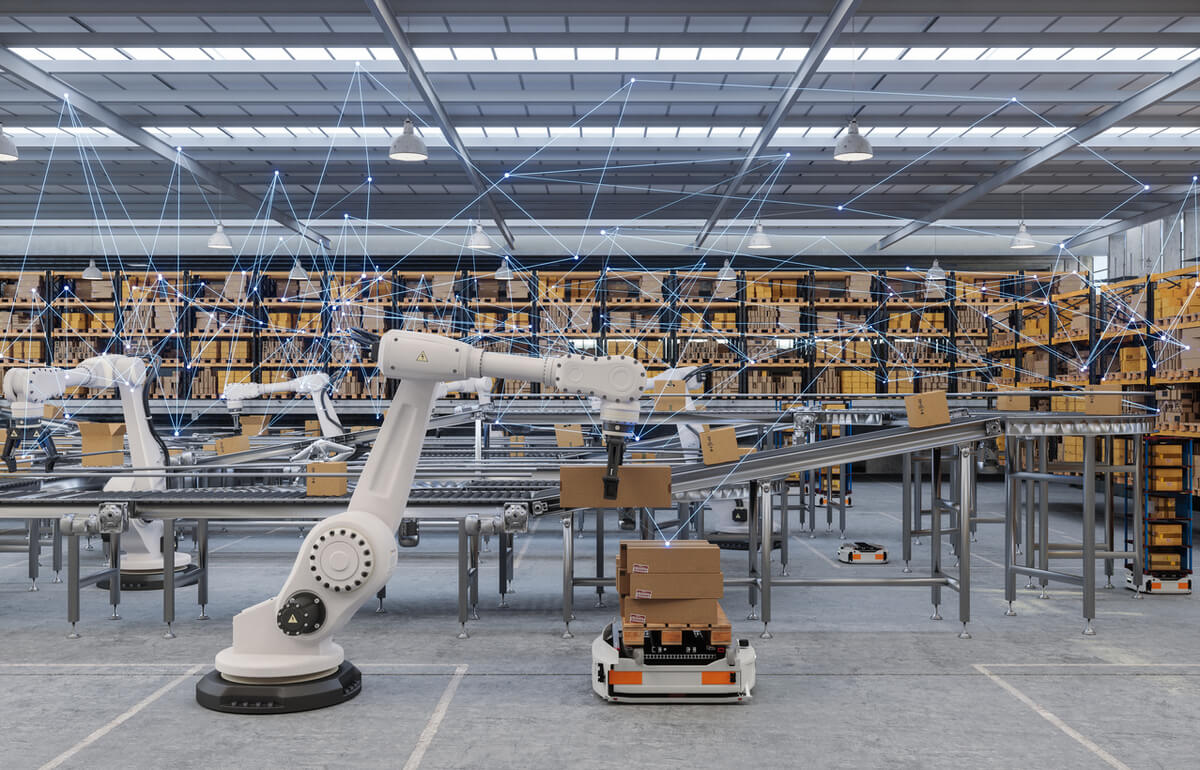
Intelligent automation in customer service
AI automation is transforming customer service through advanced technologies such as chatbots, self-service systems, and smart customer support centers. These solutions not only enhance operational efficiency but also significantly improve customer experiences while reducing operational costs for businesses.
AI technologies applied in customer service include:
- AI-powered chatbots: Modern chatbots go beyond answering simple questions, evolving into 24/7 customer support systems with natural language processing (NLP) capabilities. For instance, these advanced chatbots can answer complex queries, offer product recommendations, and guide customers through the purchasing process without human intervention. Major companies like H&M and Sephora use AI chatbots to assist customers with online shopping, delivering seamless and personalized experiences.
- Smart self-service systems: AI is integrated into self-service platforms, allowing customers to search for information and resolve issues without needing to call or wait for human assistance. In the banking industry, AI self-service systems enable customers to check account balances, process payments, or get product inquiries resolved directly through mobile apps or websites.
- Intelligent customer support centers: AI is applied in customer support centers to automatically classify calls, prioritize urgent requests, and assign tasks to agents based on skills and current workload. This optimizes support processes, improves agent productivity, and ensures that customers receive timely assistance.
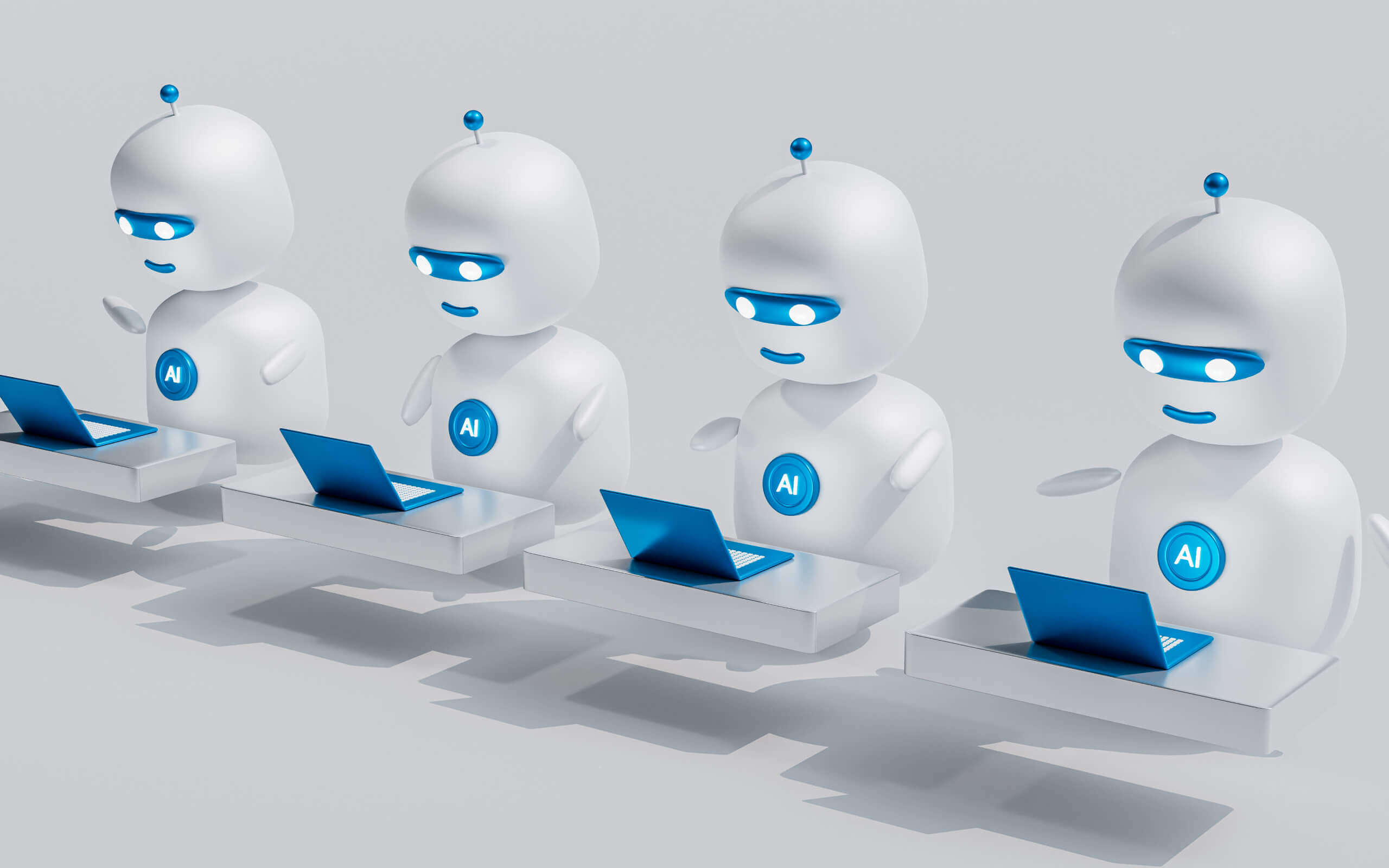
AI is widely adopted in industries such as retail, banking, and telecommunications, where high customer service demands require flexibility. Retailers use AI automation to personalize shopping experiences, while banks and telecom companies leverage AI to resolve customer issues quickly and efficiently, improving service quality.
The future of AI in manufacturing and management
AI is unlocking groundbreaking potential in manufacturing and management, with emerging technologies such as machine learning robots and distributed artificial intelligence. These advancements are set to revolutionize how businesses manage processes, optimize production, and enhance operational performance.
Key AI technologies with the potential to revolutionize manufacturing and management include:
- Learning robots: Unlike traditional robots that perform pre-programmed tasks, modern AI-powered robots can automatically adapt and improve their performance over time. These robots not only complete tasks as required but also learn from production data to fine-tune operations, reducing errors and optimizing workflows. For example, in the automotive industry, learning robots can improve speed and precision in vehicle assembly when customer specifications change.
- Distributed artificial intelligence: This promising AI technology allows AI systems to be distributed across multiple devices and machines, operating in parallel to handle more complex workloads. This enables manufacturers and managers to monitor and control multiple parts of the production process remotely, processing vast amounts of data in real-time. In management, distributed AI supports businesses in monitoring organizational performance, from workforce management to operations.
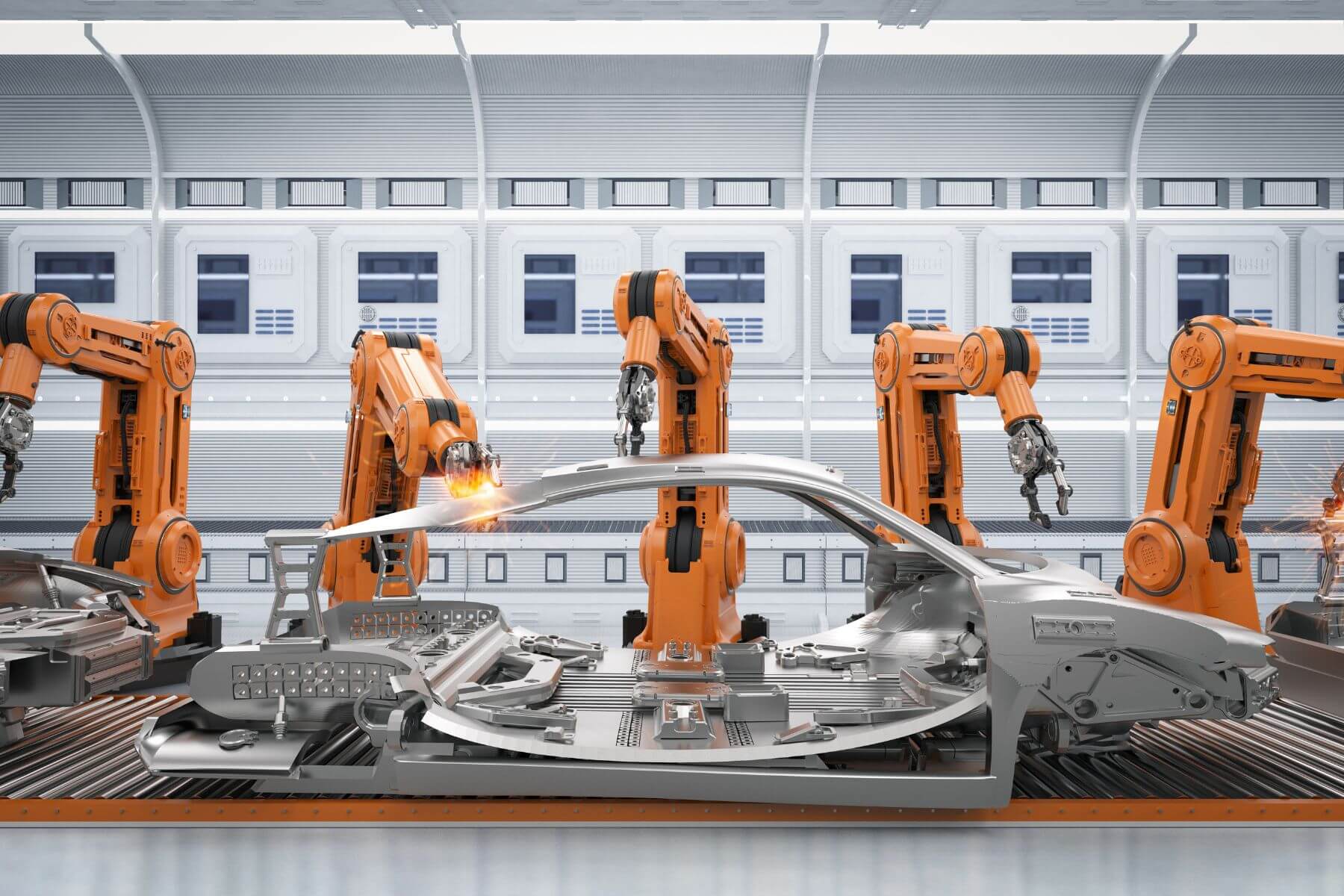
The development and application of AI in manufacturing and management are expanding rapidly, particularly in industries such as automotive, electronics, and fast-moving consumer goods (FMCG). AI helps automate processes, improve efficiency, and support decision-making through real-time data analysis, enabling businesses to more accurately predict market demand.
In the future, AI will enhance competitiveness, reduce operational costs, and improve product quality, especially as distributed artificial intelligence allows companies to operate synchronously on a global scale. Although initial implementation costs are a challenge, advancements in technology and cloud-based AI solutions are expected to lower these costs, making AI more accessible to small and medium-sized businesses. Companies that pioneer AI adoption will gain significant advantages, and in the long run, AI will not only transform manufacturing and management but also reshape business models, driving productivity and efficiency.
As AI Automation continues to evolve, its role in transforming industries will become even more pronounced in 2025 and beyond. Integrating advanced AI technologies will not only enhance efficiency but also create new opportunities for innovation and growth. While challenges such as initial implementation costs and technology accessibility remain, the long-term benefits of AI Automation will drive widespread acceptance. Businesses investing in AI today will be better positioned to thrive in an increasingly competitive, data-driven world, affirming AI Automation as a crucial element of future success.
